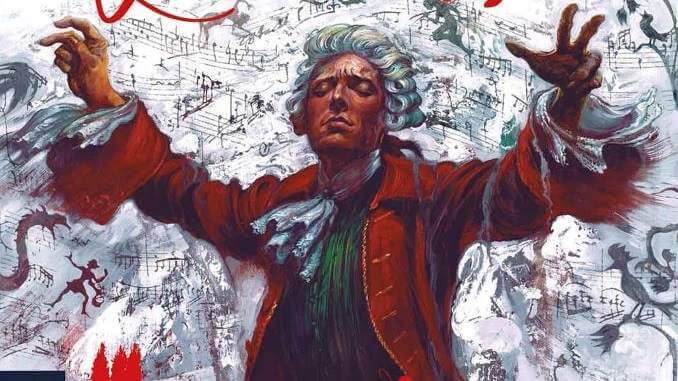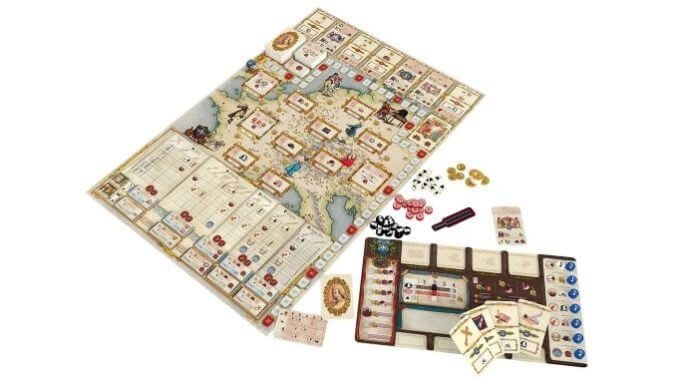Finish Mozart’s Final Work in the Great Board Game Lacrimosa

The board game Lacrimosa is a stunner on the table, from the ornate drawing of Wolfgang Amadeus Mozart on the cover to the massive table presence, with a board that includes a map of western and central Europe in Mozart’s time and a facsimile of sheet music at the bottom. Fortunately, the game itself is a match for its art and table presence, with a clever deckbuilding mechanic and multi-function cards that allow for quick turns but a lot of strategy.
Players in Lacrimosa are patrons of Mozart, who left his Requiem unfinished at his death, at which point his widow Constanze contacts the patrons to help her find new composers to help complete the masterwork. The game moves backward in time, sort of, as players commission new works from Mozart, arrange to perform or sell them for cash and/or other bonuses, travel with Mozart to different cities for one-time or game-end bonuses, and hire composers and musicians to complete the Requiem. The narrative here is a little jumbled, as many of these things happen simultaneously in the game but would have required that Mozart be alive and dead at the same time, and we’ve already had one Schrödinger’s Cat-themed game this year.
I say you just go with it, because the game itself is quite good. Each player gets four actions in each of the game’s five epochs, and your actions come from your deck of nine cards. You play two cards on each turn, choosing one for its action, shown at the top of the card, and another for the resources it will give you in the next epoch, shown at the bottom of the card, placing them in top and bottom slots in your player board. You can use the Document Memories action to buy a new card for your deck, but you use it to replace the card you placed in the bottom slot on that turn, so your deck will always comprise nine cards. Another action lets you buy an Opus card, which goes on the table rather than in your deck; one action lets you perform or sell an Opus you have for cash and/or resources; one lets you move the carriage along the map, paying travel costs but getting a significant benefit or possibly a game-end victory point condition; and the last lets you place a token from your board on the Requiem space on the board, assigning a musician and a composer to that space for victory points at game-end.

-

-

-

-

-

-

-

-

-

-

-

-

-

-

-

-

-

-

-

-

-

-

-

-

-

-

-

-

-

-

-

-

-

-

-

-

-

-

-

-








































